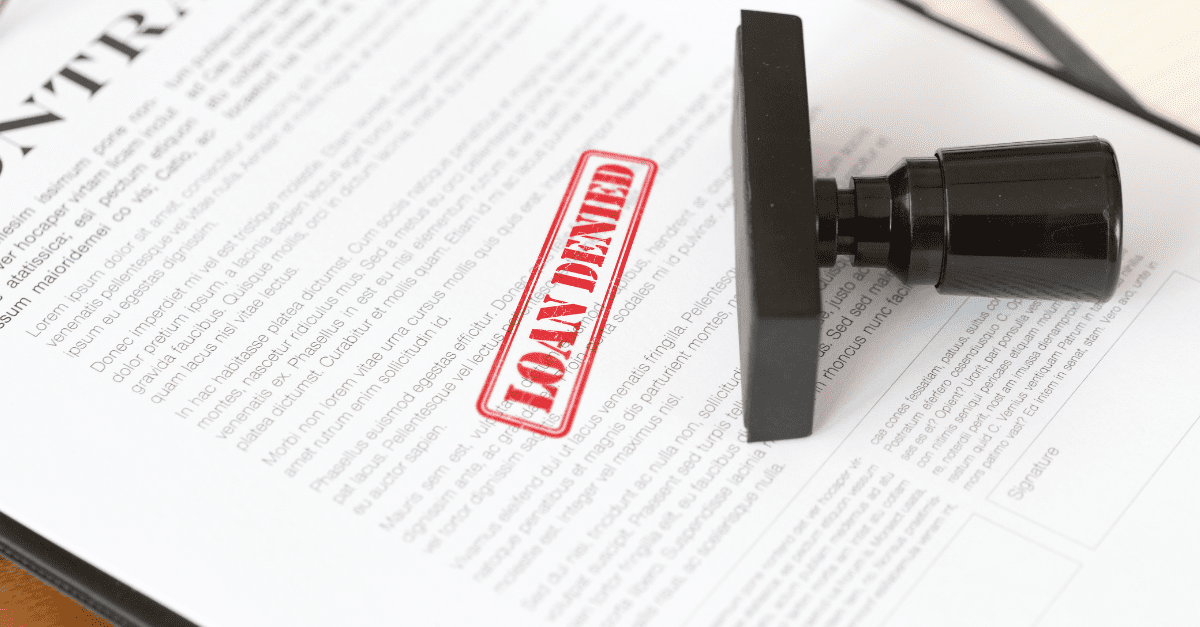
For Canadian homeowners, the mortgage renewal process is a significant aspect of their homeownership journey. While the prospect of mortgage renewal brings the promise of negotiating better terms, it doesn’t always go smoothly. Around 3% of mortgage renewals are refused. In this blog, we’ll explore the ins and outs of the mortgage renewal process, common issues that may arise, and what to do if your current mortgage term is denied.
Table of Contents
Understanding the mortgage renewal process
The mortgage renewal process in Canada typically involves renegotiating the terms of your mortgage loan with your current lender during renewal time. Homeowners often seize this opportunity to secure a more favourable interest rate. However, since your mortgage term may range from a few months to five years, multiple renewals occur during the lifetime of a mortgage, and the process doesn’t always go smoothly.
There is a possibility that your mortgage renewal will be denied because of missed mortgage payments, a poor credit score, changes in your financial situation or the market, or because you’ve taken on too much new credit.
Why was my mortgage renewal denied?
The ability to renew your mortgage is not guaranteed, as a lender reassesses your credit as a borrower at the time of renewal. Common reasons why your mortgage renewal was denied might include:
- Missed mortgage payments: Consistently missing payments or having a problematic payment history can lead to denial. If you have a mortgage in arrears at the time of renewal, there is a high likelihood that your renewal will be denied.
- Bad credit score: Lenders often examine your credit report, and a poor credit score may result in a denied renewal. If you have never missed a payment, they may overlook a slightly lower credit rating.
- Drop in income: During the renewal process, lenders may assess your income. If you have experienced a recent job loss or a decrease in earnings, your mortgage lender may feel you will struggle to meet your monthly mortgage payments, potentially leading to a denial by the lender.
- Negative market conditions: A decline in home prices can cause traditional lenders to tighten credit policies. If your home equity and loan-to-value ratio falls, you may move from a low-ratio mortgage to a high-ratio mortgage requiring mortgage insurance or a denial by your current lender.
- Too much debt: Excessive credit card debt, car loan payments and other new loan expenses can lead to a higher debt service ratio. If your DSR exceeds 40%, your lender may feel you don’t have the money to make your future mortgage payments.
- Higher interest rates: Renewing a mortgage when interest rates rise can lead to unaffordable monthly payments, which may contribute to denial.
- Failing stress test with a new lender: Refinancing with a new lender will involve a stress test. If interest rates are higher, a new test can negatively influence the renewal outcome.
What to do if your mortgage renewal is denied
If your current lender does not approve your mortgage renewal due to bad credit or other reasons we discussed, here are some steps to take to deal with a denied mortgage renewal:
- Talk with your current lender: Find out why your mortgage renewal was denied. Ask them what the minimum changes they might expect to improve your odds of a renewal.
- Extend your amortization. If the reason was affordability due to higher interest rates or loss of income, ask if you can change your mortgage amortization period to make your monthly payments more affordable. Remember that a longer amortization means your payments will go down, but it will take longer to pay off your home.
- Improve your credit score. Lower credit scores need to be addressed long before your mortgage renewal date. Take steps to address any missed payments and improve credit utilization on your credit report.
- Consider a different lender: If institutional lenders have denied your renewal, you may want to explore options with a B lender and see if you can refinance with a new mortgage lender. B lenders are smaller specialized monoline lenders, credit unions, trust companies and mortgage investment companies. Be aware that changing lenders means refinancing, requiring a stress test.
- Consult with a mortgage broker: Mortgage brokers can play a pivotal role in securing alternative lenders and better rates. Even if your mortgage renewal was approved, talking with a mortgage broker can help you achieve lower mortgage rates.
- Consider a private mortgage lender: If the B lender has denied you, you may want to consider a private lender for your mortgage renewal application. Keep in mind they may not be licensed, and it can come with higher risk and higher interest rates.
- Get a cosigner: Bringing in a cosigner may improve your chances of approval if your guarantor has a good credit score.
- Clean up other debt: If you’ve taken on a lot of new credit cards or other unsecured debt since your last mortgage renewal, clearing bad debt may help your odds at renewal time.
- Downsize or sell your home: If you’re a homeowner and all financial institutions have denied your mortgage renewal, it may be time to walk away from your mortgage.
Struggling with debt payments?
Where to find professional help with mortgage renewal
Seeking professional assistance is crucial when navigating mortgage renewal challenges.
What can a mortgage broker do?
Consult with mortgage brokers to access better rates and mortgage terms and to help find alternative lenders. Contact them early so they can work with you to improve your chances of approval and find a mortgage at the best mortgage rate possible for your situation.
How can a Licensed Insolvency Trustee help with your mortgage?
If you can no longer afford your mortgage or your mortgage may be denied due to too much other debt, consider contacting a Licensed Insolvency Trustee.
Even with a bankruptcy or consumer proposal, there are options to keep your home and make your mortgage repayment easier. If you have filed a consumer proposal, your mortgage renewal should go smoothly if you have made your mortgage payments in full and on time.
Understanding the details of the mortgage renewal process, being proactive in addressing potential issues, and seeking professional guidance if you are concerned about your mortgage being denied is essential.
If debts like credit cards, payday loans or lines of credit affect your ability to afford your mortgage payments or may affect your mortgage renewal, book a free consultation with a local Licensed Insolvency Trustee for advice and mortgage debt relief.






